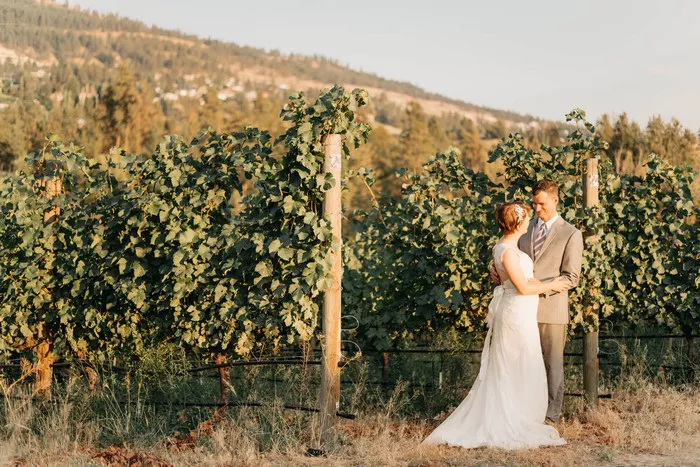As wedding costs continue to rise, and logistical hurdles like road construction intrude on special days, couples and venues alike are learning to adapt.
The price of saying “I do” has never been higher—and now, the journey to the altar is facing more than just financial barriers. With the average U.S. wedding now costing $36,000, up from $25,000 a decade ago, couples are seeking new ways to celebrate without breaking the bank. But for some venues, like Rustic Manor 1848 in Delafield, Wisconsin, love is navigating literal roadblocks—construction on Highway 83.
A Shift Toward Simplicity
The pressure to throw grand, picture-perfect weddings has reached new heights, with social media platforms like Instagram and TikTok fueling a culture of one-upmanship. “Weddings have become productions,” says Brittiny Gibson, a Florida-based wedding planner and host of the “Wed Zen” podcast. “Everyone wants their wedding to go viral.”
But that pressure comes with a hefty price tag. Gibson reports that her average client now spends between $80,000 and $250,000—a far cry from the $25,000 she and her husband paid for their 80-person wedding just ten years ago.
Many couples are responding by downsizing, opting for courthouse ceremonies, backyard receptions, or micro weddings that focus on intimacy and cost-efficiency.
Anthony Metz and Laura Perez are among those choosing frugality over flair. The couple wed in a small ceremony at the Lee County Clerk of Courts office for just $30. “We wanted to save a little money and use it on a trip or the things we need,” Metz said.
“Wedding Tax” and the Cost of Expectations
Vendors often charge more for weddings than similar events—a phenomenon known colloquially as the “wedding tax.” But industry professionals argue that the higher prices reflect added time, labor, and expectations.
“It’s not just because it’s a wedding,” says Gibson. “You’re picking exotic flowers, designer candles, and wanting ten hours of photography. That’s why it costs more.”
And global factors like inflation, supply chain disruptions, and international tariffs are exacerbating the problem. “Most flowers come from overseas,” Gibson explains. “As their costs go up, so do yours.”
Heather Barkis, owner of Pure Bridal Boutique in Fort Myers, is adapting by offering off-the-rack designer gowns to help brides cut costs. “Every year, everything gets more expensive. That’s just life,” she says.
Rustic Manor Navigates Orange Cones and Orange Blossoms
While couples juggle financial decisions, some venues are contending with more tangible challenges. Rustic Manor 1848 in Delafield is grappling with road closures and detours as the Wisconsin Department of Transportation (WisDOT) resurfaces a stretch of Highway 83 right outside its doors.
“It’s not ideal,” says owner Whitney Shneyder. “Nobody wants to see a road closure on their way to a wedding. But Highway 83 really needed the repairs.”
The construction, which began in April and is expected to continue through fall, affects local homes, churches, and businesses between Gold and Vettelson Roads. With full closures at Cardinal Land and Oakwood Road, guests must navigate a patchwork of detours before reaching the rustic barn venue.
Despite the inconvenience, Shneyder maintains perspective. “Like any good Wisconsinite, we’re no strangers to construction,” she says with a laugh. “We booked these weddings years ago, and now we’re adding just a little bit of orange to our white weddings.”
WisDOT spokespersons say they’re working closely with local
stakeholders to minimize disruption. “We’re in regular communication with business owners like Whitney to ensure access remains available throughout the project,” a department representative said.
Finding Meaning Beyond the Price Tag
Whether it’s scaling down for affordability or braving bulldozers for love, today’s couples are learning to prioritize what truly matters. More are choosing weekday ceremonies, backyard gatherings, or elopements. Micro weddings—smaller celebrations with a focus on quality over quantity—are also on the rise.
“The great thing about micro weddings is that you save instantly on food, drinks, and venue size,” says Gibson. “With a smaller group, your money goes further.”
Her top piece of advice? “Set your budget, then subtract $5,000 right away. That’ll cover the unexpected.”
As for Metz and Perez, the courthouse ceremony was exactly right. “We’re happy,” Metz said. “That’s what it’s all about.”
And as the road to “happily ever after” grows more complicated—both metaphorically and literally—couples across the country are proving that love doesn’t need a lavish setting. It just needs a solid foundation and maybe a good detour sign.

